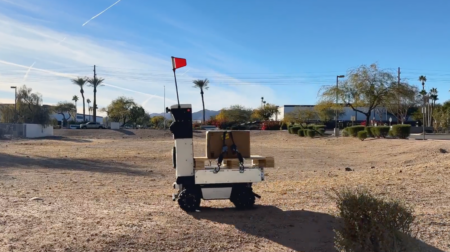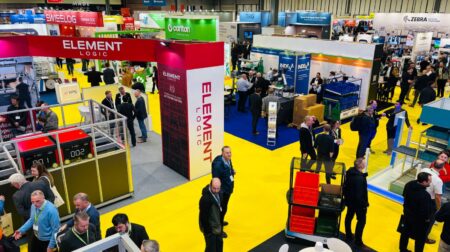Eureka Robotics has developed a technology that makes industrial robots nimbler and almost as sensitive as human hands, able to manipulate glass lenses, electronics components, or engine gears that are millimetres in size without damaging them.
This proprietary force feedback technology developed by the tech spin-off from Nanyang Technological University, Singapore (NTU), was previously demonstrated by the “Ikea Bot” which assembled an Ikea chair in just 20 minutes.
NTU associate professor Pham Quang Cuong, co-founder of Eureka Robotics, said they have since upgraded the AI-powered software technology, which will be made available for a large number of industrial robots worldwide by industrial robots supplier Denso Wave, which is part of the Toyota group.
Clients purchasing the latest robots sold by Denso Wave will have an option to include this new technology as part of the force controller, which reads the force detected by a force sensor on the robot’s wrist and applies force accordingly.
Mastering “touch sensitivity” and dexterity like human hands has always been the holy grail for roboticists, said Cuong, as the programming of the force controller is extremely complicated, requiring long hours to perfect the grip just for a specific task.
“Today, Dynamis has made it easy for anyone to programme touch-sensitive tasks that are usually done by humans, such as assembly, fine manipulation, polishing or sanding,” added Cuong.
“These tasks all share a common characteristic: the ability to maintain consistent contact with a surface. If our human hands are deprived of our touch sensitivity, such as when wearing a thick glove, we would find it very hard to put tiny Lego blocks together, much less assemble the tiny components of a car engine or of a camera used in our mobile phones.”
Known as “Force Sensor Robust Compliance Control”, the new software powered by Dynamis requires a single parameter to be set – which is stiffness of the contact, whether it is soft, medium, or hard.
The team said despite its “simple set-up”, it has been shown to out-perform conventional robotic controllers, which required an enormous amount of expertise and time to fine-tune.
To be equipped with the “Force Sensor Robust Compliance Control” capability, robots already running on Denso Wave’s RC8 controllers will be required to perform a software update from December 2021 onwards. While newly shipped RC8 controllers will come packed with the software available for activation.







